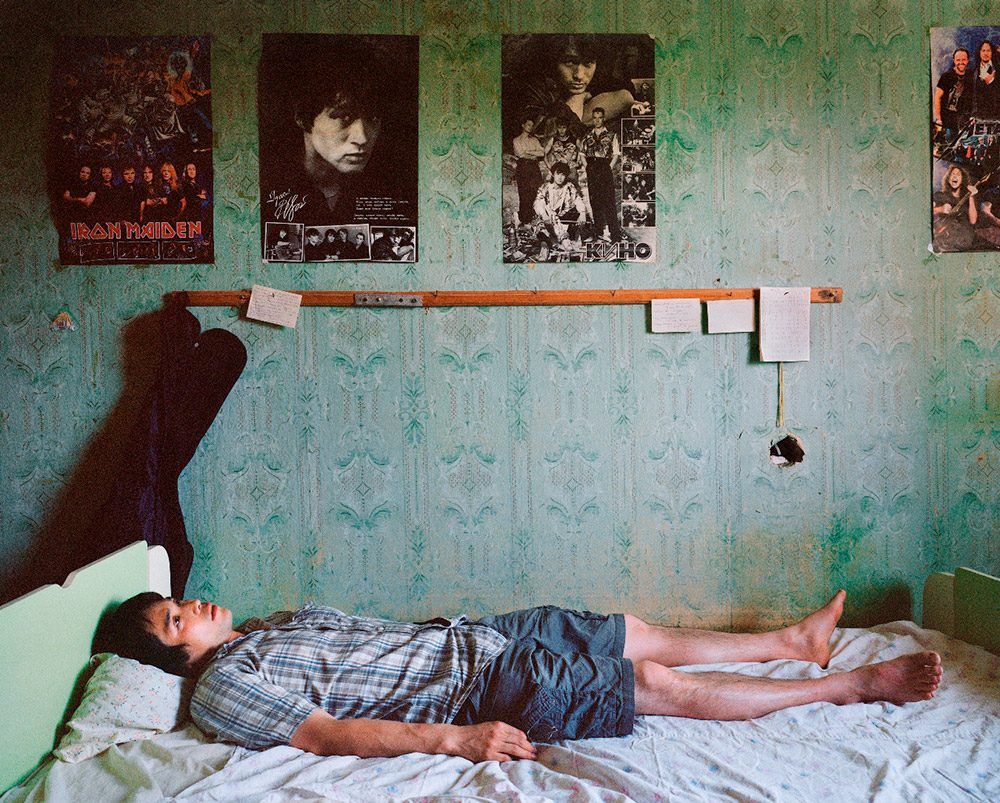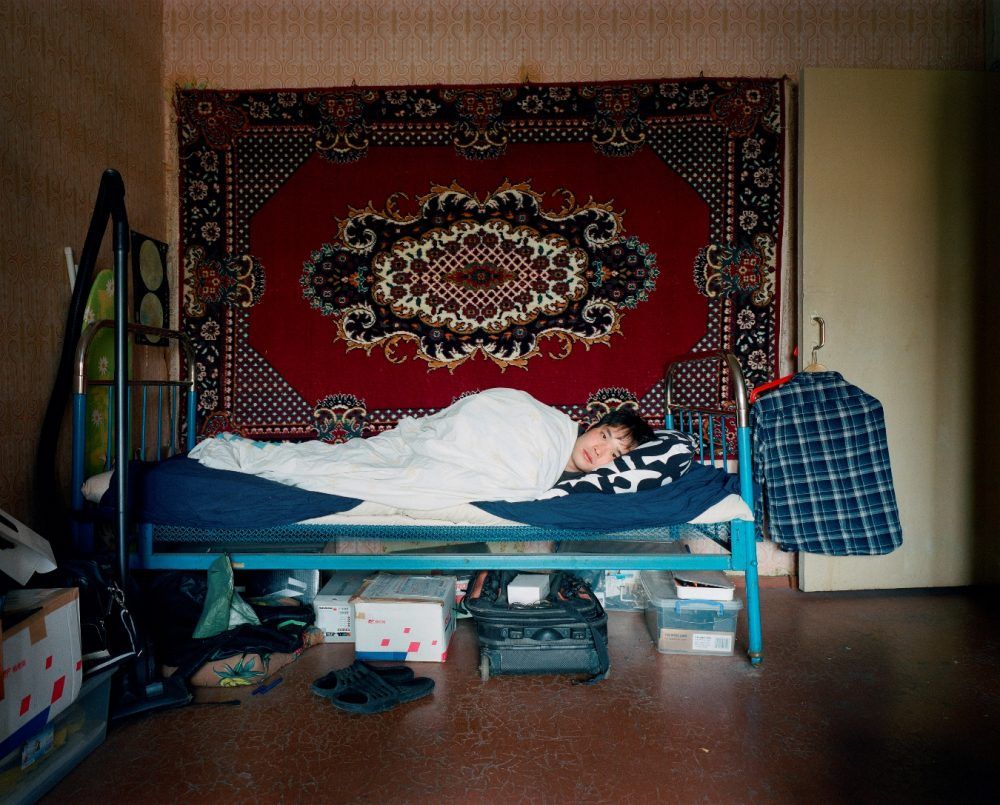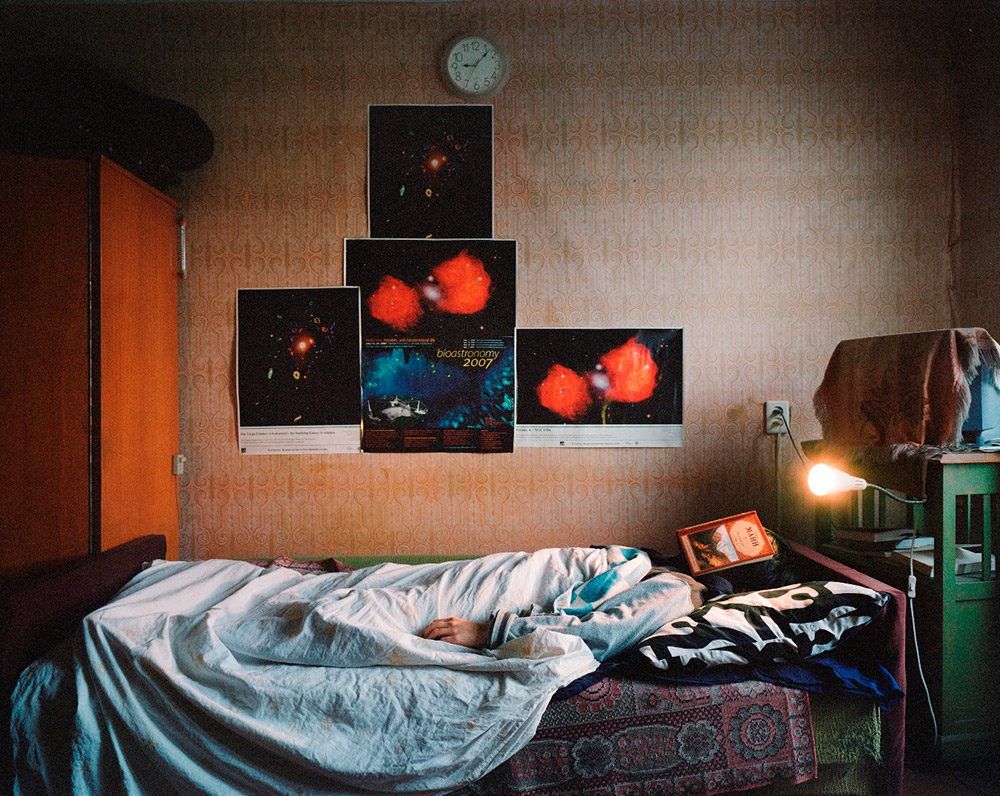blog
Book Review: I, Oblomov by Ikuru Kuwajima

I can’t always say why a certain book arouses my interest. In the case of “I, Oblomov”, I believe it was the press release that stated that “Ikuru Kuwajima explored the post-Soviet space of Russia, Ukraine, Kazakhstan, Kyrgyzstan through the lens of ‘oblomovism'”. Since these are countries I haven’t visited but have seen numerous pictures of that I thought intriguing, I was curious to get to see more of these landscapes. However, this book is not about impressive nature but – although this was stated clearly in the press release but I had somehow overlooked it – about ‘oblovism’. And while ‘Oblomov’ ringed some bell, I couldn’t really place it.
As ever so often, Wikipedia helped and so I learned that ‘Oblomov’ happens to be a popular novel by Russian writer Ivan Goncharov, first published in 1859. Ilya Ilyich Oblomov, the central character of the novel, “is a young, generous nobleman who seems incapable of making important decisions or undertaking any significant actions. Throughout the novel he rarely leaves his room or bed. In the first 50 pages, he manages only to move from his bed to a chair.” Goncharov writes: “On glancing casually at Oblomov a cold, a superficially observant person would have said, “Evidently he is good-natured, but a simpleton”; whereas a person of greater penetration and sympathy than the first would have prolonged his glance, and then gone on his way thoughtfully, and with a smile as though he were pleased with something.”

I felt reminded of Herman Melville’s short story ‘Bartleby the Scrivener” in which a Wall Street lawyer hires a new clerk who, after an initial bout of hard work, refuses to do any task required of him, with the words “I would prefer not to”. In other words, Oblomov as well as Bartleby seem to see no purpose or sense in doing what everybody else is doing and insist on living life their way.
So how does one go about portraying a man who spends most of his life in bed? This is how Japanese photographer Ikuru Kuwajima describes his approach: “Whether this is pure laziness, or stoic wisdom, Oblomov’s strange lethargy – or ‘Oblomovhchina’ (Oblomovism) – continues to be a powerful force in Russia today. In this book, I offer my own interpretation of this distinctly Russian phenomenon through a series of self-portraits and interior photographs taken over the course of my travels in Russia, Ukraine, Kazakhstan and Kyrgyztan. As the images show, I often found myself lying down for long periods, overome by depression, laziness, bad weather or hangover – evidence that after nine years of living in the former USSR, Oblomovhchina can also become the reality of a Japanese photographer.” Wonderful! I love this! Because it not only personalizes what the Russian poet and statesman Fyodor Tyutchev (1803-1873) once stated – “Russia cannot be understood by the mind alone …” – , it also makes clear there is something bigger and more important than the mind. In the words of Ikuru Kuwajima: “Over time, Russia seeps into the body; even if it cannot be explained, it is powerfully felt.”
We all know that it is one thing to be told that someone spends most of this time in bed and quite another to show it: What we get to see are the photographer lying in a variety of positions on different beds as well as walls, ceilings, drawn curtains, views through windows, and interiors of apartments.

Obviously, Ikuru Kuwajima identifies with Oblomov, hence the title “I, Oblomov”. Yet he also wonders: “I often stayed as a guest at my local friends’ and acquaintances’ places in various cities … Perhaps they also spend their time like this, sometimes … In this quiet, solitary place … Like Oblomov,” I thought. “Well, who is Oblomov in the end? They? Or I? … Or is it you?”
“I, Oblomov” comes with a lot of quotes (here’s my favourite: “He was unaccustomed to movement, life, crowds and bustle.”) taken from the novel and a book jacket made from cotton that perfectly makes the point (in my interpretation, that is) that one needs to dress warmly when one is about to go one’s own way.
“I, Oblomov” is based on a convincing idea and the combination of pictures (that could have been taken by anybody and didn’t require photographic talent or knowledge) and quotes works very well. I think it an entertaining and inspiring work. This of course has also to do with the fact that I’m fond of the novel (at least of the parts that I have read) This is how it starts:
“One morning, in a flat in one of the great buildings in Gorokhovaia Street, the population of which was sufficient to constitute that of a provincial town, there was lying in bed a gentleman named Ilya Ilyitch Oblomov. He was a fellow of a little over thirty, of medium height, and of pleasant exterior. Unfortunately, in his dark-grey eyes there was an absence of any definite idea, and in his other features a total lack of concentration. Suddenly a thought would wander across his face with the freedom of a bird, flutter for a moment in his eyes, settle on his half-opened lips, and remain momentarily lurking in the lines of his forehead. Then it would disappear, and once more his face would glow with a radiant insouciance which extended even to his attitude and the folds of his night-robe. At other times his glance would darken as with weariness or ennui. Yet neither the one nor the other expression could altogether banish from his countenance that gentleness which was the ruling, the fundamental, characteristic, not only of his features, but also of the spirit which lay beneath them. That spirit shone in his eyes, in his smile, and in his every movement of hand and head …”.
Last but not least, Ikuru Kuwajima notes that Tolstoy, Dostoevsky and Chekhov admired Ivan Goncharov novel, Lenin and Nabokov however disapproved of it. Of Oblomov himself, his creator wrote: “And he rejoiced to be lying there, as free of care as a newborn baby, squandering nothing and selling nothing.” Quite wonderful, I’d say.

“I, Oblomov”
by Ikuru Kuwajima
Pareto-Print, Moscow 2017
photobookfest.com/eng
For orders, go to http://anzenbergergallery-bookshop.com/book/1862/i__oblomov_(signed)-ikuru_kuwajima or to lumiere.ru/shop/
Location: Online Type: Book Review
Events by Location
Post Categories
Tags
- Abstract
- Alternative process
- Architecture
- Artist Talk
- Biennial
- Black and White
- Book Fair
- Car culture
- charity
- Childhood
- Children
- Cities
- Collaboration
- Cyanotype
- Documentary
- environment
- Event
- Exhibition
- Family
- Fashion
- Festival
- Film Review
- Food
- Friendship
- FStop20th
- Gun Culture
- Italy
- journal
- Landscapes
- Lecture
- love
- Masculinity
- Mental Health
- Museums
- Music
- Nature
- Night
- photomontage
- Podcast
- Portraits
- Prairies
- River
- Still Life
- Street Photography
- Tourism
- UFO
- Wales
- Water
- Zine

Leave a Reply